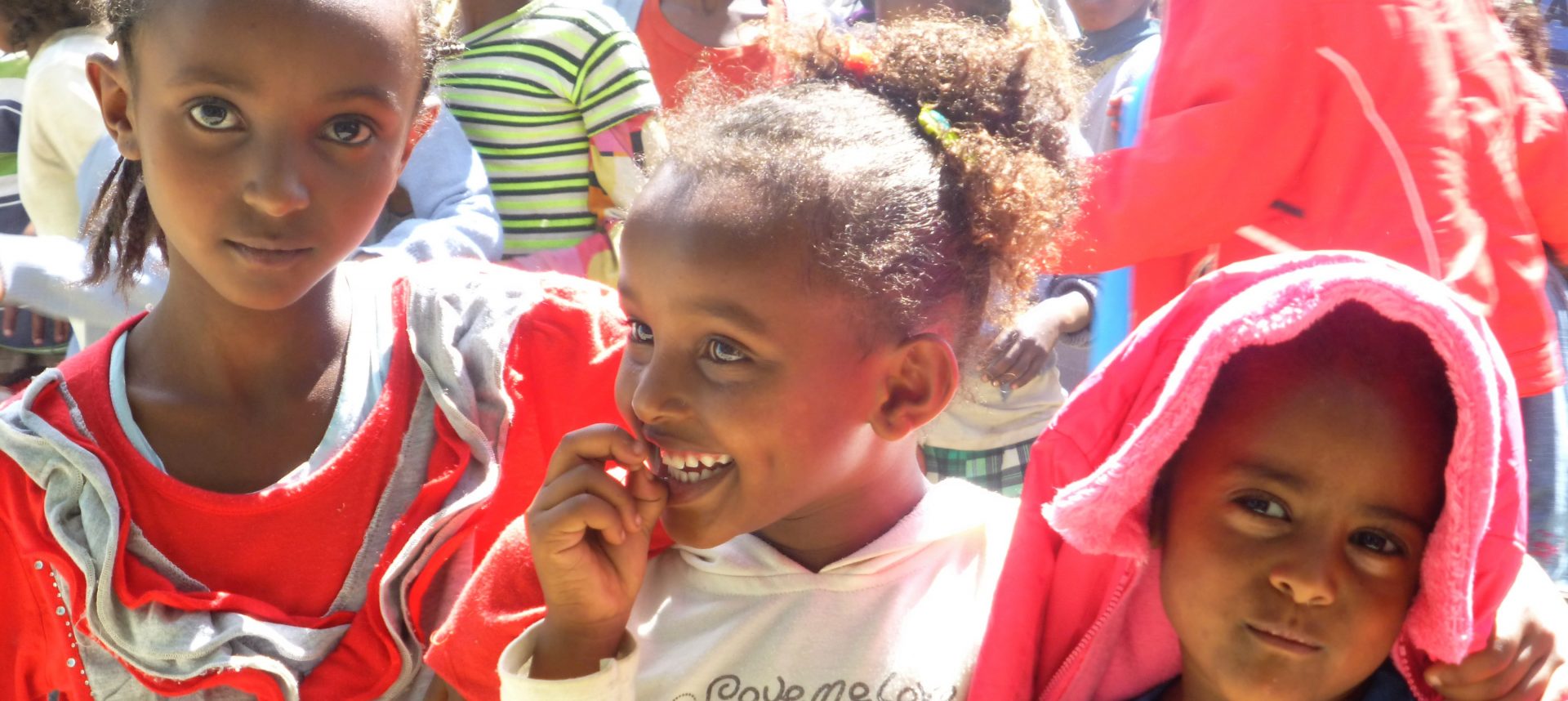« I want to change the life of children and women in my home village Saware in the South of Ethiopia – in a sustainable way» – Kebede Dache
Why? What is the situation now?
- Children walk long distances to go to school, and it is dangerous on steep paths and with dangerous animals.
“ I suffered from that already when I was a child” says co-founder Kebede Dache Dalacho. - Lack of pure drinking water: Children and women walk long distances to get drinking water, but that water is not clean. This makes the people and especially children sick.
- Use of open three-stone woodfires for cooking, often inside the houses. Collecting the wood is very time-consuming, again for children and women.
- No electricity, use of kerosene lamps for lighting
- Women and girls experience inequality, hard life and no income resources, e.g.:
• Girls go less to school than boys
• Children and women carry wood for cooking & water from the rivers
• Their health is more affected through indoor air pollution from kerosene lamps and fires
What are we doing?
„Improving life starts with clean water, better health, education and empowerment – and with creating additional income opportunities“
Step by step we improve the conditions – in a sustainable way:
- Create access to pure drinking water, inside the village
- Introduce improved cooking solutions, which produce less smoke and use less wood
- Create better access to education and ensure quality education. Our long term plan is to build a primary school inside the village and build an education system which preserves the natural environment and teaches about sustainable ways of improving life
End then, the long term goals are:
- Build competences for the local people in health and hygiene, benefits of solar energy, rainwater harvesting, organic agricultural practices, drip irrigation & permaculture
- Build business opportunities with income generation for the local people, especially women, through sustainable, environment- and climate-friendly practices.
How are we doing it?
1. Access to pure drinking water
- Water pump inside the village, hand pumps or solar pumps
- Create ownership and ensure maintanance
- Owned by women groups
2. Improved cooking solutions
- Cookstoves instead of open fires, adapted to local menus and needs
- Improved cookstoves need less wood, can burn different type of biomass and produce less smoke
- Trainings in production/installation and use
- Creation of small production business for locals
3. Access to better education with model primary school inside the village
- For children from grade 1 to 6
- And for adults who did not have sufficient education
- Construction with modern knowhow combined with traditional methods
- Integrating solar power for light & electricity, especially for the night classes for adults.
- Creating of ownership: People from the local community will be involved from the beginning and help constructing the school and therefore feel the ownership and take care of the school.
- Fair paid good teachers for motivated classes.
- The school is for girls and boys and parents will be especially motivated to send their daughters to school.
4. Trainings for adults (and children) / „Competence center“
- For health and hygiene
- Benefits of solar energy
- Clean cooking methods and awareness about pure drinking water
- Rrainwater harvesting and drip irrigation
- Organic agricultural practices
5. Business opportunities and income generation
- Production and sales of improved cookstoves
- Additional organic cultivation of local products (such as Moringa and local herbs) for sales abroad
- Solar kiosk: local sales (+ maintenance) of small solar systems
- Integrating women for empowering women
Our impacts
- Better health for the people, especially children and women
- Better chances for the future of the children
- Better income opportunities
- More time for school and income generating activities
- Saved forests
- Protected climate

